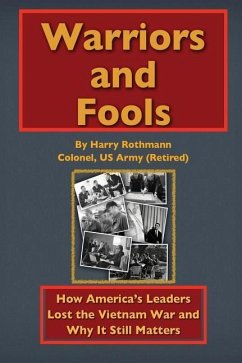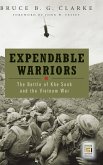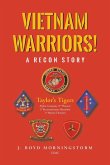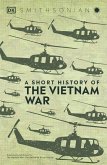Warriors and Fools is not just another book about the Vietnam War. It is different from most. Unlike some others, the author is a veteran of that conflict, and a retired military officer with nearly thirty years' service. He has spent much of the last three decades studying the war and taught a course on Vietnam at a prestigious senior military war college. This book is also different from others because it is a story not just of the American decisions and actions during the war. This Vietnam War story uses the latest, ground breaking research and released documentation of the war from the Communist Vietnamese side of the conflict. Consequently, the book delves deeply into the decision making, strategies, motives, and goals of the North Vietnam leaders as they waged their war for unification, first against the French and then against the Americans. The book also uses memoirs, interviews, and oral histories of former South Vietnamese leaders and combatants to discover their views on their struggle to form a new nation free from communist aggression. Warriors and Fools is both broad and deep in scope in its narration of the Vietnam War story. It takes the reader from the White House's oval office and Hanoi's Politburo room, to the Pentagon's and North Vietnam Army's command centers, to Vietnam's mountain and rice patty battlefields to show the determination, deceit, foolhardiness, mistakes, courage, and horrors of war from the views of both sides. While it examines multiple participant views, overall the book seeks to answer one specific question - why did the US fail to achieve its principal objective to defend South Vietnam from communist aggression? The story's findings and conclusions are neither orthodox nor revisionist. Those trying to gain insights on how American civilian leaders lost the war that its military could have won; or how the US Congress, Press, or Antiwar activists convinced the Public to stop its support will be disappointed. None of these traditional 'answers' on why the US lost are really valid. Rather, as this story explains the answer is much more linked to human factors, interactions, and relationships. In this case, the interrelationship between American civilian and military leaders and advisors was extraordinarily divisive and dysfunctional. So much so that it resulted in flawed, timid policies and foolish strategies that led to defeat. Moreover, that troublesome interrelationship was primarily a result of mistrusts, misunderstandings, and misperceptions on their roles, responsibilities, and what they thought would lead to a positive end to the war. In addition, primarily because they were either ignorant of the nature of war or overconfident from their past experiences, civilian and military policymakers ignored or misunderstood their enemy. Warriors and Fools should be of interest to those who served in the war, and serious students and teachers of this event and period. It is not intended as light reading, or for someone trying to get just a brief understanding of what happened there and in America at the time.








